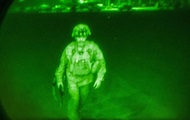Merdeka.com – General Chairperson of the Indonesian Doctors Association (IDI) Executive Board Daeng M Faqih reminded that there are still a number of infectious diseases other than Covid-19 whose case rates are still high and need to be watched out for, especially before the rainy season.
“Ahead of the rainy season, there are infectious diseases such as dengue fever which have a large number of cases and the death rate is still very high,” Daeng said in a virtual discussion on Tuesday.
In addition to dengue fever, Daeng said infectious diseases such as tuberculosis or TB and HIV also have a high case rate in Indonesia, and the number of cases is in the top five in the world.
“This does not include some of the diseases that we have tried to eradicate, such as polio, but in some areas cases are still surfacing,” explained Daeng.
The high number of infectious disease cases in Indonesia seems to break the expert’s statement that infectious diseases have experienced a lot of decline and many cases lead to lifestyle diseases. This lifestyle disease is a type of non-communicable disease, which is generally caused by lack of physical activity, unhealthy eating, excessive alcohol consumption, drug consumption, and smoking.
“But the reality is that there are still many infectious diseases, they don’t go away, they even increase the disease due to the corona pandemic. This must be paid attention to by the public so that they are more vigilant,” explained Daeng.
Daeng said that the pandemic made health problems in Indonesia even more complicated and the order was getting bigger, both infectious diseases and lifestyle.
Nevertheless, Daeng reminded that there are four things that we must take care of so that we don’t get sick easily, especially during a pandemic like now.
“The first is behavior, then the environment, then the immune system and finally health services,” said Daeng.
Of the four things, Daeng emphasized the importance of behavioral and environmental factors to overcome health problems.
“Clean and healthy behaviors such as bathing, washing hands are part of behavior to keep ourselves clean. So if the body is clean, germs will not easily enter our bodies. If we leave personal hygiene, it will be very dangerous because germs, bacteria and viruses can easily enter , said Daeng.
In maintaining the cleanliness of the body, Daeng suggested the use of antiseptic soap that can be used to help reduce bad microorganisms that interfere with our health.
“The second is environmental factors, by sanitizing and disinfecting the home environment, work environment, and even the shopping environment so that the viruses do not spread,” said Daeng.
Daeng added that the home environment must be cleaned because the house often occurs in family clusters.
“What must be cleaned frequently are items or anything that families and children often touch, such as doors, furniture, and gadgets. Don’t forget to do regular cleaning,” said Daeng
In addition, Daeng reminded to continue to apply the 3M health protocol, namely washing hands, wearing masks and staying away from crowds. [eko]
– .


